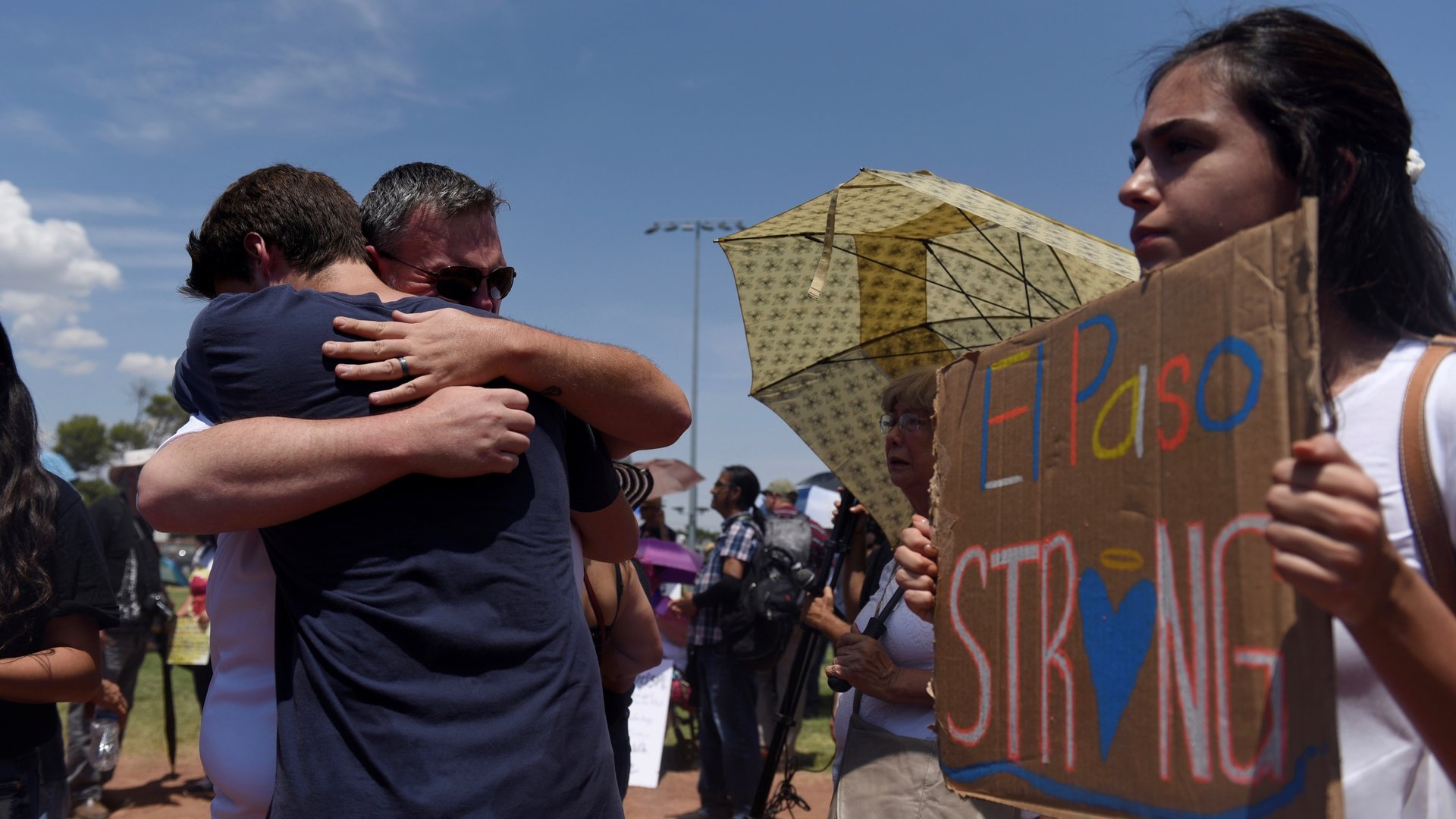What a new US bill to prevent mass shootings gets right. And wrong.
Texas senator John Cornyn today introduced new legislation aimed at halting mass shootings in the US.


Texas senator John Cornyn today introduced new legislation aimed at halting mass shootings in the US.
He announced the bill with an op-ed in the El Paso Times and Odessa American, publications in cities in his state targeted by shooters this summer. “Sandy Hook, Orlando, Las Vegas, Sutherland Springs, Santa Fe, and most recently–El Paso and Midland-Odessa,” the senator wrote. “Across the nation, city names have become trending hashtags as acts of mass violence have rocked communities, and claimed the lives of innocent people.”
Cornyn hopes his bill can curb this disturbing trend. It’s called the RESPONSE Act, short for Restoring, Enhancing, Strengthening, and Promoting Our Nation’s Safety Efforts.
It proposes a slew of initiatives to do this, some of which seem wiser than others.
Laudably, the RESPONSE Act is focused on improving mental health services by adding more outpatient facilities, expanding the mental health workforce, and creating more treatment and intervention task forces nationwide. It would also add funding for mental health treatment in the criminal justice system.
The bill targets unlicensed gun dealers, which seems sound. Cornyn noted in his post today that the Midland-Odessa shooter failed a background check at a licensed firearms dealer, but was still able to purchase weapons from an underground dealer. His bill proposes the creation of nationwide task forces to investigate and prosecute illegal gun sales, and purchasers who provide false statements as part of a background check.
Still, some initiatives give pause, and one is downright alarming.
Cornyn doesn’t mention the most shocking of his proposals in his op-ed—perhaps that was intentional. The RESPONSE Act seeks an expedited death penalty process under state laws for people convicted of mass terrorism crimes, limiting their federal appeals. In other words, the senator is urging his fellow lawmakers to pass legislation undermining due process of law.
That is worrisome because due process of law exists to protect all of us, and especially people whose life the state plans to take. Wherever a person stands on use of the death penalty, we can perhaps agree that a punishment so severe must be subject to the law’s full scrutiny, instead of less than usual.
Another somewhat disturbing initiative in the RESPONSE Act will encourage internet service providers and online platforms to “collaborate” with law enforcement by sharing more information. It “clarifies that they have the authority to share information with law enforcement concerning acts of mass violence, hate crimes, or domestic terrorism.”
This is worrying because we don’t know how the platforms and services we use will interpret this clarification and precisely what information falls in these categories. But we can be sure that this is one more threat to online privacy in a time when it seems, societally, we’re already vulnerable.
Finally, the RESPONSE Act proposes school safety improvements, all a little creepy in their way. Cornyn wants to fund more active shooter training for teachers, and he wants schools to monitor students’ internet use for disturbing signs, and to create intervention teams that monitor kids for signs of imminent violence, which in theory sounds fine if you don’t mind the surveillance.
If the legislation passes and these initiatives get underway, the reality will surely be more complicated as educators grapple with what to watch for and report and the consequences of the calls they make for kids who have perhaps done no harm.
Five Republican senators co-sponsored the bill with Cornyn. He called on the rest of his colleagues to pass the act, writing, “I spent time with families and victims in El Paso and Midland-Odessa following those tragedies and pledged to work with my Senate colleagues on real solutions…I urge my colleagues to come together once again to pass the RESPONSE Act to help prevent mass shootings and put a stop to this senseless loss of life.”